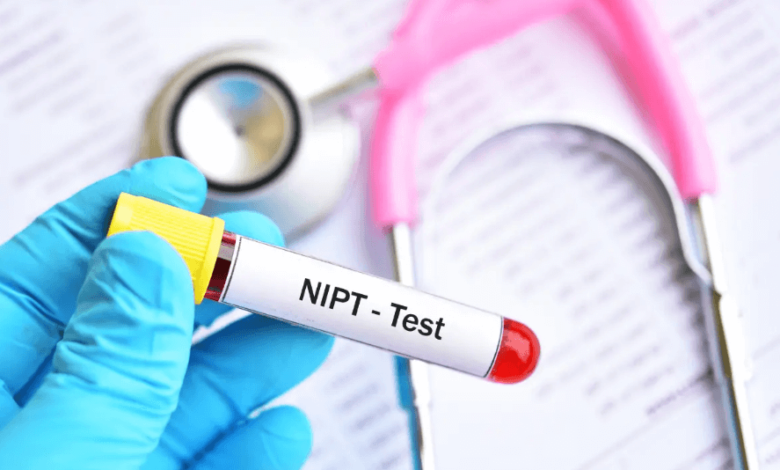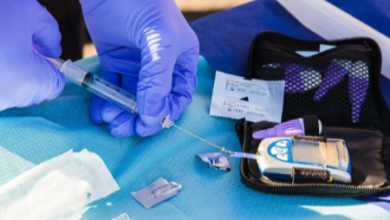Noninvasive Prenatal Testing (NIPT): A Safer Way to Screen Your Baby’s Health

During pregnancy, the expectant mother and father are excited, nervous, and overwhelmed with questions. Unlike the other decisions, you have one more decision to make about how to track the baby’s growth throughout pregnancy. Fortunately, prenatal screening can help you do this! One of the newest alternatives is noninvasive prenatal testing (NIPT).
There are times when it is important to gather information about your child’s health using a method that might feel delicate, like pregnancy; this method will not risk anything. If you are wondering about the NIPT process and if it is right for you, this guide is for you.
What Is Noninvasive Prenatal Testing(NIPT)?
Noninvasive prenatal testing (NIPT) examines certain genetic conditions in a developing fetus with a simple blood draw from the mother. NIPT is far less intrusive than older methods requiring placenta or amniotic fluid sampling, and allows for great accuracy and safety. Modern non-invasive prenatal tests simply require a blood sample of the mother to analyze minute bits of DNA shed by the fetus.
The test is primarily used to screen for the following conditions:
- Trisomy 21 (Down syndrome)
- Trisomy 18 (Edwards syndrome)
- Trisomy 13 (Patau syndrome)
- Abnormalities in sex chromosomes, such as Klinefelter syndrome or Turner syndrome
Some labs may also offer screening for microdeletion syndromes or other smaller chromosomal alterations.
See also: Exploring the Role of a Chiropractor in Hong Kong’s Modern Healthcare Scene
Why Are More and More Expecting Parents Choosing NIPTs?
Because it’s non-invasive, highly accurate, and straightforward, with a detection rate exceeding 99% accuracy for Down syndrome, NIPT significantly outshines traditional screening methods in terms of false positive results.
This test is available from roughly ten weeks into the pregnancy and is especially recommended for:
- Women aged over 35 years.
- Those with a history of genetic disorders in their family.
- Women who have undergone IVF treatment.
However, anyone who is pregnant can choose to have NIPT done, regardless of whether they are low or high risk.
What Is Involved in the Procedure?
It is simple and uncomplicated:
Blood Draw
The collection of the sample involves taking one tube of blood from the mother’s arm. Unlike many medical procedures, no prior fasting is needed.
Laboratory Analysis
The collected sample goes to a certified lab that analyzes fetal DNA for chromosomal abnormalities using advanced techniques.
Results and Counseling
As with any other medical test, results will be made available 7-14 days after the necessary tests have been conducted. If anything unusual is found during the initial evaluation, additional tests may be necessary to confirm the findings.
Common Questions About NIPT
Is Noninvasive prenatal testing 100% accurate?
No test can ever be flawless. NIPT does have a high reliability rate as a screening test, but it is not diagnostic in nature. Tests like amniocentesis or CVS (chorionic villus sampling) are necessary for positive confirmation.
Can NIPT reveal the baby’s gender?
In most situations, NIPT does confirm the sex of the child with greater than 99% probability.
Does it pose any risk to the baby?
No risks at all whatsoever. In fact, since only blood samples from the mother are necessary, this is a non-invasive procedure posing no danger to the fetus.
How to Decide If NIPT Is Right for You
Each expecting parent has different needs. Based on your personal preferences, in addition to your medical background and age, your interests, values, and priorities will be aligned best with a doctor or genetic counselor who will guide you on the path to making decisions about whether noninvasive prenatal testing is right for you.
And while there is the opportunity to find knowledge and ease anxiety as a parent with early information, or to make a conscious decision to avoid it because you believe it won’t change your course of pregnancy decisions, both resistance and acceptance bring confidence and a forward route with knowledge, making a huge difference.
Select A Trustworthy Lab for NIPT
Where you get your test done could be detrimental, which is why precision, dependability, and seamless support throughout the process are essential. FSG LAB is one of the proudly trusted names in advanced genetic testing within the region. They provide comprehensive services, including non-invasive prenatal testing to assist expectant parents at every level.
Having the right information, along with a seasoned team that expertly guides you, makes having an informed parenthood journey much easier.




